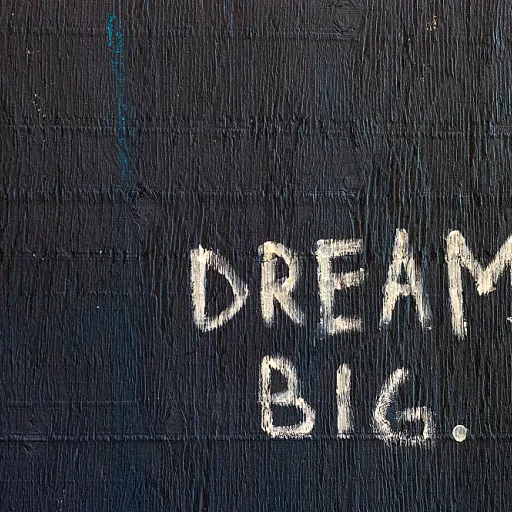
Key responsibilities of a general manager in erection of mill
Position overview and core duties
The general manager in charge of mill erection plays a pivotal role in overseeing the entire setup process, from initial planning to the final stages of production. This manager position demands a strong understanding of both technical and business operations, blending leadership, workforce management, and a focus on safety and quality control. The job description typically covers a wide range of responsibilities that require years of experience in industrial projects, especially in milling and plant management.
Key areas of responsibility
- Project planning and execution: Strategic planning is at the heart of this role. The general manager must coordinate all phases of mill erection, ensuring timelines, budgets, and resources are managed efficiently. This includes aligning with engineering, procurement, and construction teams.
- Team leadership and workforce management: Building and leading a strong team is essential. The manager must recruit, train, and motivate staff, ensuring a culture of safety, continuous improvement, and high production quality. Soft skills and human resources expertise are crucial for fostering collaboration and resolving conflicts.
- Safety and health compliance: Maintaining health and safety standards is non-negotiable. The general manager ensures all operations comply with regulations, conducts regular safety audits, and implements risk mitigation strategies to protect the workforce.
- Quality control and production oversight: The manager is responsible for establishing quality benchmarks and monitoring production quality throughout the erection process. This includes problem solving and adapting processes to meet customer service expectations and business goals.
- Stakeholder communication: Regular updates to senior management, clients, and service providers are part of the job. Clear communication ensures alignment on project milestones and addresses any issues that arise.
Integrating business acumen and technical expertise
This manager job requires a degree in business, engineering, or a related field, combined with practical experience in plant or mill operations. Strong leadership and planning skills, along with a commitment to continuous improvement, set effective general managers apart. For those interested in how these skills translate to other complex roles, exploring hiring strategies for technical management positions can offer valuable insights.
Essential skills and qualifications for the role
What Makes a General Manager Effective in Mill Erection?
The role of a general manager in mill erection projects is complex and demands a blend of technical expertise, leadership, and operational know-how. The job description goes far beyond overseeing daily operations; it requires a strong understanding of both the construction and milling industries. Here’s what stands out when evaluating candidates for this manager position:
- Technical Skills and Qualifications: A degree in business, engineering, or a related field is often required. Years of experience in plant management or similar operations is essential. Familiarity with production quality, quality control, and continuous improvement processes is a must.
- Leadership and Team Management: General managers must demonstrate strong leadership skills, guiding a diverse workforce through complex projects. Experience in human resources, workforce planning, and conflict resolution is highly valued.
- Strategic Planning and Problem Solving: The ability to develop and execute strategic plans, manage resources, and solve problems quickly is crucial. This includes overseeing safety protocols and ensuring health and safety standards are met at all times.
- Soft Skills and Communication: Effective communication, adaptability, and customer service orientation are key soft skills. These help ensure smooth collaboration between teams, contractors, and stakeholders.
- Business Acumen: Understanding the business side of mill erection, from budgeting to service quality, is vital. General managers must balance operational efficiency with production targets and quality standards.
For a deeper dive into how operational roles compare, you might find this article on exploring the role of a payment operations specialist helpful, as it highlights the importance of strong management and service skills in complex environments.
Ultimately, the ideal candidate for a general manager job in mill erection will have a proven track record in production, safety, and team leadership, supported by a solid foundation in business and operations management. These skills ensure not only the successful erection of the mill but also the ongoing quality and efficiency of its operations.
Unique challenges in hiring for mill erection projects
Complexities in Sourcing and Evaluating Talent
Hiring a general manager for mill erection projects is a unique challenge in the world of operations and management. The job description demands a strong understanding of both technical and leadership skills, blending production quality, safety, and business acumen. Unlike traditional manager positions in sectors like restaurant or service, the mill erection environment is highly specialized, requiring candidates with years of experience in large-scale industrial projects.
- Technical expertise: Candidates must demonstrate a deep knowledge of milling operations, quality control, and health safety standards. This is not always easy to verify through resumes alone, making practical assessments and scenario-based interviews essential.
- Leadership and workforce management: The general manager must lead diverse teams, often under tight deadlines and in high-pressure environments. Soft skills such as problem solving, communication, and team motivation are as critical as technical know-how.
- Strategic planning and continuous improvement: The role requires a strong focus on planning, production quality, and continuous improvement. Candidates should have a proven track record in managing complex projects and driving operational excellence.
- Business and customer service orientation: While the focus is on production, the manager must also ensure customer service standards and align operations with broader business goals.
Barriers to Attracting Qualified Candidates
The pool of candidates with the right mix of skills, degree business background, and hands-on experience in mill erection is limited. Many professionals with strong management skills may lack direct experience in this niche sector, making it difficult to ensure a good fit. Additionally, the demanding nature of the job and the need for flexibility in remote or challenging locations can deter potential applicants.
Human resources teams often struggle to identify candidates who possess both the technical and soft skills required for this manager plant role. Traditional hiring methods may not be sufficient to uncover the best talent. Modern recruiting tools and platforms can help streamline the process, improve candidate matching, and enhance the overall hiring experience. For more on how technology is transforming recruitment, see this guide to modern recruiting tools.
Ensuring Quality and Safety in Selection
Given the high stakes in mill erection projects, it is essential to prioritize candidates who can ensure both production quality and health safety. This requires a rigorous assessment of their previous management experience, quality control achievements, and ability to foster a culture of safety and continuous improvement within the team. The right general manager will not only meet the technical requirements but also drive service excellence and support the long-term success of the business.
Interview strategies for assessing candidates effectively
Evaluating Leadership and Problem-Solving in Real Scenarios
When interviewing for a general manager position in mill erection, it’s crucial to move beyond the resume. Candidates should demonstrate strong leadership, strategic planning, and a solid understanding of mill operations and safety. To assess these qualities, consider using scenario-based questions that reflect real challenges in milling and production quality.- Ask about specific situations where the candidate managed a diverse workforce during a high-pressure project. Look for evidence of effective communication, team motivation, and conflict resolution.
- Present a problem related to quality control or health safety. Evaluate how the candidate would ensure compliance and maintain production standards under tight deadlines.
- Explore their approach to continuous improvement and how they have driven operational excellence in previous roles.
Assessing Technical and Soft Skills
A general manager in mill erection must balance technical expertise with strong soft skills. During the interview, probe for:- Experience in planning and overseeing large-scale operations, including workforce management and human resources coordination.
- Ability to implement business strategies that align with service quality and customer service expectations.
- Skills in risk assessment, especially regarding health safety and production quality.
Practical Assessments and Reference Checks
Consider incorporating practical assessments, such as reviewing a sample project plan or conducting a mock safety briefing. This approach helps verify the candidate’s ability to translate their years experience into actionable management decisions. Finally, thorough reference checks are essential. Focus on verifying the candidate’s track record in similar manager plant or manager job roles, especially in environments where quality, safety, and continuous improvement are non-negotiable.Onboarding and training best practices
Building a Foundation for Success
Effective onboarding and training are essential to set up a general manager for success in mill erection projects. This process goes beyond a simple introduction to the job description. It’s about ensuring new managers understand the unique operations, safety protocols, and quality control standards that define milling environments.- Structured Orientation: Start with a clear overview of the business, production quality expectations, and the specific goals of the mill erection project. This helps the manager position themselves within the broader management structure and workforce.
- Health and Safety Training: Given the high-risk nature of mill erection, comprehensive health safety training is non-negotiable. Cover all relevant regulations, emergency procedures, and the importance of continuous improvement in safety practices.
- Role-Specific Skills Development: Focus on the technical and soft skills strong general managers need—leadership, problem solving, strategic planning, and quality control. Tailor training to the manager plant environment, emphasizing hands-on experience and real-world scenarios.
- Mentorship and Peer Support: Pair new hires with experienced general managers or supervisors. This helps transfer institutional knowledge and fosters a culture of teamwork and service.
- Performance Milestones: Set clear, measurable objectives for the first 90 days. Regular check-ins allow for feedback and adjustments, ensuring the manager’s integration into the team and alignment with production and customer service goals.
Continuous Learning and Adaptation
Ongoing training is vital for maintaining high standards in operations and management. Encourage participation in workshops on quality, leadership, and human resources. Promote a mindset of continuous improvement, where managers are empowered to identify gaps and propose solutions that benefit both the workforce and business outcomes. A strong onboarding and training program not only boosts retention but also ensures that every general manager is equipped to lead teams, uphold safety, and drive production quality from day one.Retaining top talent in mill erection management
Building Loyalty Through Leadership and Engagement
Retaining top talent in mill erection management is a challenge that goes beyond offering competitive salaries. General managers who excel in this area focus on creating a strong culture of engagement, safety, and continuous improvement. Here are some proven strategies:- Foster a sense of purpose: Employees in mill erection projects want to know their work matters. Effective managers communicate how each role contributes to production quality, safety, and the overall success of operations.
- Prioritize health and safety: A strong commitment to health safety standards not only protects the workforce but also builds trust. When team members see that management values their well-being, loyalty increases.
- Invest in ongoing training: Continuous improvement is essential in this field. Providing regular training in quality control, problem solving, and soft skills helps employees grow and adapt to evolving business needs.
- Recognize and reward performance: Recognition programs, whether formal or informal, encourage a culture of excellence. Celebrating milestones in production, safety, or customer service boosts morale and retention.
- Encourage open communication: General managers with strong communication skills create an environment where feedback is welcomed. This helps address issues early and supports a collaborative team dynamic.
- Offer clear career paths: Employees are more likely to stay when they see opportunities for advancement. Outlining a path from entry-level roles to management positions, supported by mentorship, can be a powerful retention tool.
- Align with business goals: Linking individual and team objectives to broader business and production goals helps employees understand their impact and motivates them to stay engaged.













